Call Us
08045800126Acid Proof Tiles
Price 19 INR/ Piece
Acid Proof Tiles Trade Information
- Minimum Order Quantity
- 500 Pieces
- Supply Ability
- 10000 Pieces Per Week
- Delivery Time
- 3 Days
- Main Domestic Market
- All India
About Acid Proof Tiles
Acid-proof tiles, also known as acid-resistant tiles or chemical-resistant tiles, are specialized tiles designed to withstand exposure to corrosive chemicals, acids, alkalis, and other harsh substances. These tiles are commonly used in industrial environments such as chemical processing plants, laboratories, battery rooms, and other facilities where acids are handled or produced. Here are some key features and characteristics of acid-proof tiles:
Material Composition: Acid-proof tiles are typically made from materials such as ceramic, porcelain, vitrified clay, or certain types of plastics that are inherently resistant to chemical corrosion. These materials are non-reactive and impervious to acids and other corrosive substances.
Chemical Resistance: Acid-proof tiles offer excellent resistance to a wide range of acids, including sulfuric acid, hydrochloric acid, nitric acid, and various organic acids. They are also resistant to alkalis, solvents, oils, and other chemicals commonly found in industrial settings.
Non-porous Surface: Acid-proof tiles have a non-porous surface that prevents the penetration of liquids and gases, thereby providing effective protection against chemical attack and corrosion. This also makes them easy to clean and maintain.
High Temperature Resistance: Acid-proof tiles are capable of withstanding high temperatures, making them suitable for use in environments where elevated temperatures may be present, such as around hot equipment or during steam cleaning procedures.
Abrasion Resistance: Acid-proof tiles are resistant to abrasion and mechanical wear, ensuring long-term durability and performance even in high-traffic areas.
Dimensional Stability: Acid-proof tiles maintain their shape and size over time, even when exposed to extreme temperatures or fluctuations, ensuring a tight and secure installation.
Variety of Sizes and Shapes: Acid-proof tiles are available in a variety of sizes, shapes, and designs to suit different applications and aesthetic preferences. They can be installed as floor tiles, wall tiles, cove base tiles, or as part of a custom lining system.
Installation: Acid-proof tiles are installed using specialized adhesives or mortars that are resistant to acids and chemicals. Proper installation techniques are crucial to ensure a tight seal and long-lasting performance.
Maintenance: Acid-proof tiles require minimal maintenance but should be cleaned regularly to remove any accumulated dirt, grime, or chemical residues. Acid-proof cleaning agents should be used to avoid damaging the tiles.
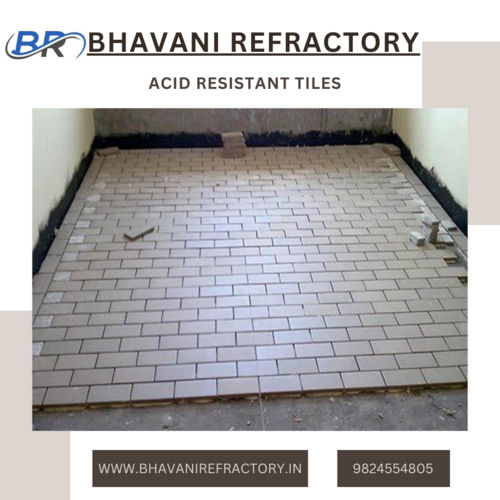

Price:
- 50
- 100
- 200
- 250
- 500
- 1000+
More Products in Acid Proof Tiles Category
Acid Proof Tiles Lining Services
Price 354 INR / Square Meter
Minimum Order Quantity : 100 Square Meters
Shape : Other, Powdered
Application : Paints
Types of Refractories : Other, Fireclay
Acid Resistant Tiles
Price 21 INR / Piece
Minimum Order Quantity : 500 Pieces
Shape : Brick
Application : Chemical Industry, Pharmaceutical Industry
Types of Refractories : Acid Refractory
Product Type : Refractories
Acid Proof Tiles Lining Work
Price 250 INR / Square Meter
Minimum Order Quantity : 50 Square Meters
Shape : Other, Powdered
Application : Paints
Types of Refractories : Other, Monolithic
Alkali Resistant Tiles
Price 22 INR / Piece
Minimum Order Quantity : 500 Pieces
Shape : Brick
Application : Chemical Industry, Pharmaceutical Industry
Types of Refractories : Basic Refractory
Product Type : Refractories

 English
English Spanish
Spanish French
French German
German Italian
Italian Chinese (Simplified)
Chinese (Simplified) Japanese
Japanese Korean
Korean Arabic
Arabic Portuguese
Portuguese
 Send Inquiry
Send Inquiry
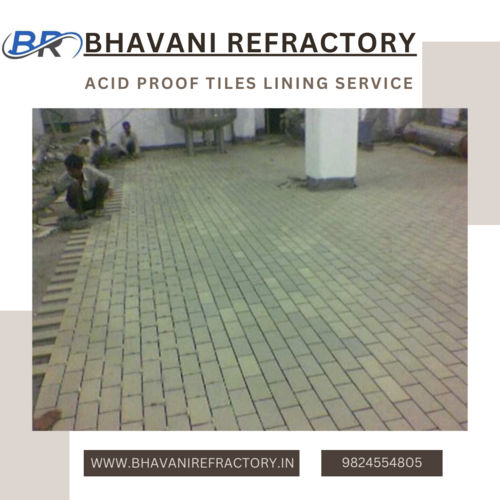
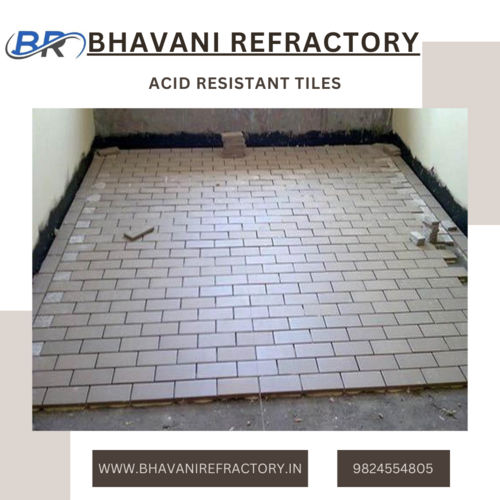
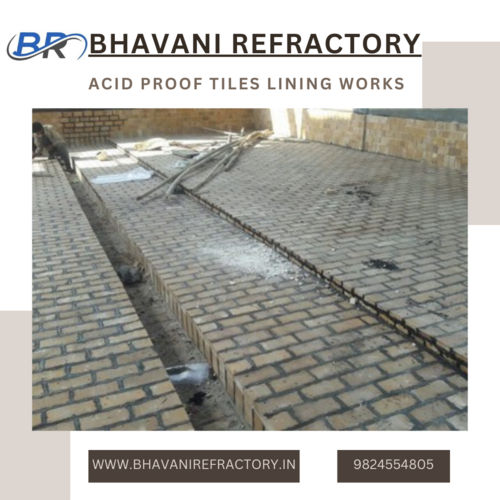
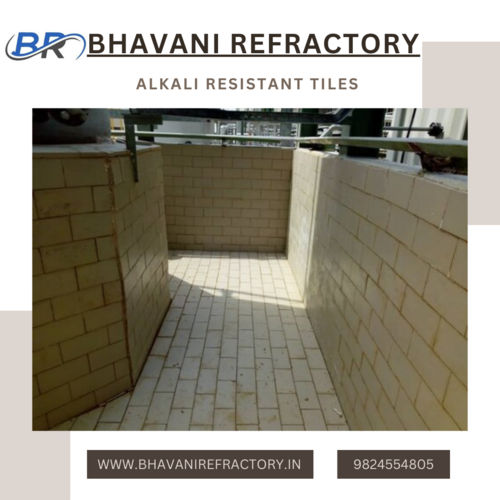
 Call Me Free
Call Me Free
